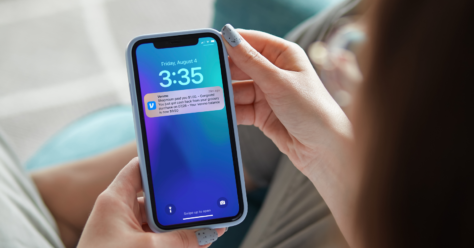Tokenism: When Representation in Marketing Falls Short
Consumers don’t just think brands should support diversity, equity and inclusion (DEI) efforts, they expect it. Nearly three-quarters (71%) of consumers expect advertisers to emphasize DEI themes in their online ads, a Facebook study found, yet most people (54%) still don’t feel adequately represented.
Those statistics reveal a clear opportunity for brands to do better. Campaign analytics show there are numerous advantages when brands incorporate diversity in advertising initiatives, such as increased ad recall and stronger brand loyalty. But as brands make increased efforts to include people of diverse backgrounds, it’s important to avoid the pitfalls of tokenism.
What is Tokenism?
Instead of addressing the deeper-rooted issues that exclude underrepresented groups, tokenism makes only superficial efforts to include people from diverse backgrounds.
For example, if a makeup brand featured an influencer with a darker complexion in an Instagram ad campaign but didn’t offer an evenly distributed shade range for people of all complexions, or didn’t make an effort to hire people of different backgrounds and perspectives, it would be participating in tokenism.
Marketing and advertising organizations should be careful about making assumptions that people from certain communities all have the same needs or perspectives—this can result in identity-based stereotyping. Tokenism can create a false sense of progress and even perpetuate inequality and exclusion.
Quotient’s Creator Series is our initiative that celebrates the diverse range of content creators in our network through a series of candid roundtable discussions, showcasing their creative expertise, unique stories and authentic identities. In the session “Live Your Truth,” lifestyle, travel and LGBTQ+ content creator Jon Bailey warned that inauthentic representation can negatively impact a brand: “Sometimes brands just don’t know, and sometimes they’re not even open to learning. They’re just trying to get the clicks, and that is a very short-term gain for a long-term loss.”

How Can Brands Avoid Tokenism
Brands can greatly benefit from actively listening to and learning from those who are intimately connected to the issues and their audience. Influencers can bridge the gap between brands and consumers by offering a genuine and personalized experience to their communities. Here are some of the valuable ways our creators have shared for brands to authentically convey messages and avoid tokenism:
- Collaborate, don’t dictate: Work with your influencers as partners rather than simply directing them to promote your products or services. This means allowing them to bring their own creativity and personality to the campaign and giving them the freedom to share their honest opinions and experiences.

- Focus on authenticity: Avoid choosing influencers solely based on their demographic characteristics. Instead, look for individuals who genuinely align with your brand values and messaging. This approach will ensure that your influencer collaborations feel authentic and meaningful.

- Consider intersectionality: Acknowledge that individuals have multiple aspects to their identity and experiences, and avoid reducing them to a single dimension. For example, a Black influencer who is also LGBTQ+ may face unique challenges and opportunities that should be taken into account.

- Influencers as consultants: Lean on influencers as consultants and leverage their unique perspectives and experiences to inform diversity and inclusion strategies. By using content creators as consultants, your brand can gain meaningful insights from both influencers and their audiences.

Are you interested in working with our diverse network of 10,000+ influencers? Contact us today at hello@quotient.com or watch our Creator Series to discover how to authentically connect your brand with consumers.



